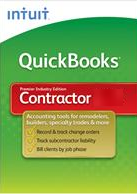If you ask 100 business owners what they like least about running a business, bookkeeping will likely rank high. It's an annoying and frustrating chore that takes up much time and is easy to put off until tomorrow.
Avoiding your bookkeeping is dangerous, however. Not knowing your construction company's financial situation can result in missteps that could ultimately cost you your business.
When starting bookkeeping as a construction business owner is challenging, a good first step is to break the process down into manageable tasks.
Read More
Topics:
10000 Hours of Bookkeeping Practice,
Construction Bookkeeping,
Systems And Processes,
Bookkeeper,
Construction Systems And Processes,
Construction Bookkeeper
It's amazing how some books stand the test of time. We usually refer to one of our most recommended, Stephen Covey's The 7 Habits of Highly Effective People, when we mentor our contractor clients and employees. Although it was first published three decades ago, its lessons are still incredibly relevant for business owners. You might wonder – how these habits fit into today's landscape of changing trends, tight deadlines, and constant distractions. The short answer is that they're timeless because they focus on principles that help you stay grounded while growing your construction business.
Below, we'll break down some of Covey's key habits and explore how you can bring them to life in your business today. Think of this as your blueprint for thriving in the chaos, not just surviving it.
Read More
Topics:
Construction Bookkeeping,
Systems And Processes,
Reading List,
Construction Systems And Processes,
contractor habits,
Good Construction Business Owner Habits

We are witnessing a remarkable transformation driven by Artificial Intelligence (AI) and automation. While these advancements promise to enhance efficiency and speed, business owners must recognize the enduring importance of soft skills in their teams for long-term success and competitiveness.
The construction industry has also experienced a significant transformation in recent years, driven by technological advancements. From project management software to drones and Building Information Modeling (BIM), construction business owners leverage these tools to enhance productivity, improve safety, and boost profitability.
This blog post will explore how you, as a construction professional, can thrive in today’s tech-driven environment and what skills you can build upon to remain adaptable.
Access to the best available tools and information is vital in almost any operation but is especially crucial in the competitive construction and home service industry. To help with your year-end bookkeeping tasks, take advantage of our exclusive 40% discount on Bookkeeping Templates (consulting, bookkeeping review, and outsourced accounting subscriptions excluded) and Construction Accounting Academy classes through January 6, 2025. you can use our promo code YEAREND40.
Read More
Topics:
Systems And Processes,
QuickBooks Year End Closeout,
Technology For Your Construction Company,
Happy New Year,
Construction Systems And Processes,
Year End Tips For Construction Contractors
As the year draws to a close, construction business owners find themselves in a critical period of reflection and preparation. The year's end is a time to celebrate past successes and an opportunity to assess financial health and strategize for the coming year. A thorough year-end financial checklist can help ensure your business is on solid footing as you move forward.
Access to the best available tools and information is vital in almost any operation but is especially crucial in the competitive construction and home service industry. To help with your year-end tasks, take advantage of our exclusive 40% discount on Bookkeeping Templates (consulting, bookkeeping review, and outsourced accounting subscriptions excluded) and Construction Accounting Academy classes now through January 6, 2025. you can use our promo code YEAREND40.
Read More
Topics:
QuickBooks Year End Guide,
Systems And Processes,
QuickBooks Year End Closeout,
Xero Year End Closeout,
Happy New Year,
Happy Holidays,
Construction Systems And Processes,
Year End Tips For Construction Contractors
The holiday season is usually filled with joy and celebration. Still, it can also bring significant stress for construction business owners. With project deadlines, year-end financial tasks, and the hustle and bustle of the festivities, it's easy to feel overwhelmed.
Here are some strategies to help you manage stress and prioritize your well-being during this busy time of year.
1. Set Realistic Goals
As project timelines draw near their conclusion, it can be tempting to push for everything to be finished before the holidays. However, setting realistic goals for yourself and your team is crucial. Prioritize tasks that must be completed and recognize that some projects may need to be deferred until the New Year. This will help reduce pressure and allow for a more balanced method as the holidays approach.
Read More
Topics:
Stress Reduction For Contractors,
Thanks To Everyone Involved In Construction,
Systems And Processes,
Merry Christmas,
Business Plans,
Happy Holidays,
Construction Systems And Processes,
Switching Off During The Holidays
The construction industry is dynamic and challenging, and a business's success or failure can hinge on various factors. As we approach the end of another year, it's essential to take a step back and assess your company's successes and challenges.
Contracting is notorious for its complexities and ever-changing landscape. It is crucial to evaluate what worked well, what didn't, and what lessons we can carry into the following year. These are my key takeaways from phone chats and emails with our clients, industry friends, and followers. Use this as a template - remove, add, and reflect on this list to hold yourself accountable for what you can improve.
Read More
Topics:
Construction Strategy,
Systems And Processes,
BPM,
Business Plans,
Processes,
Construction Systems And Processes,
Construction Business Review
Have you ever wondered how successful construction companies accurately price custom projects? The secret is in a method called Job Costing. For small business owners like you, understanding this process could be the key to increasing your profitability and ensuring that every job is priced right.
Welcome to a world where every material, labor, and overhead cost is meticulously tracked to unveil the actual cost of doing business. Let's explore Job Costing, how it works, and how you can leverage it to enhance profitability.
Understanding Job Costing
Job Costing is a way to assign costs to specific jobs or projects. Unlike methods that evenly spread costs, this approach focuses on the details—tracking materials, labor, and overhead for each job. This makes it especially useful for businesses handling custom projects, particularly construction services like remodeling or home building.
Read More
Topics:
Contractors Job Costing Library,
Job Costing Reports,
Job Costing,
Job Costs,
Pricing Jobs

Running a small construction business is a constant juggle, and managing your receivables is one of the more frustrating tasks. How often have you been waiting on overdue invoices? Do you have enough cash flow to cover next month's expenses? If this sounds familiar, you're not alone. Many small business owners need help keeping their accounts receivable in check, which can ultimately impact their business's health and sustainability.
This guide will provide practical steps to streamline your invoicing process, confidently approach past-due invoices, and ensure steady cash flow.
Understanding the importance of timely invoicing
Timely invoicing is more than just good business practice; it's critical to maintaining a healthy cash flow. When invoices go unpaid, your cash flow takes a hit, potentially affecting your ability to pay suppliers, cover payroll, or invest in growth opportunities. By sending invoices promptly, you lay the foundation for timely payments.
Studies show that businesses that practice timely invoicing and set clear payment terms see fewer delays and disputes.
Read More
Topics:
High Profit Repeat Construction Clients,
Clients,
How To Charge Clients,
Get Paid On Time,
Bad Customer Service,
invoices,
Receivables,
Construction Business Receivables
Have you ever paused to consider the real impact of your business's customer experience? Is it lifting your brand or dragging it down, along with your team's morale? Today's consumers expect nothing short of excellence, so understanding the consequences of poor customer service is vital.
So, what does poor customer service cost you? Let's delve into the details—they might change your perspective.
The ripple effect of dissatisfied customers
Every business faces it sooner or later—a client who leaves less than satisfied. But don't be fooled into thinking that the story ends there. Unhappy customers, in your case, homeowners, rarely stay silent. They're more likely to share their experiences with friends, family, and the vast world of social media. What's worse, a scathing online review can echo for years, impacting your brand's reputation far beyond the initial complaint.
Read More
Topics:
Give Your Customers And Clients What They Want,
High Profit Repeat Construction Clients,
Clients or Customers,
Clients,
How To Charge Clients,
Client Feedback,
Bad Customer Service
Setting financial goals for your construction business may be one of your most important responsibilities as a leader and business owner. Your financial goals serve as far more than wishful projections; they form the backbone of your road map for success, both internal and external. Financial goals are something that every single business should possess regardless of its market, model, or size. Let's explore how to set and track financial goals that empower your business to thrive.
Why Financial Goals Matter for Your Construction Business
Financial goals are more than just numbers on a spreadsheet. They are the roadmap that helps you plan and make strategic decisions. Without clear goals, it's like driving without a destination in mind. Think about it—how do you know if you've arrived if you never set out where you wanted to go?
Read More
Topics:
QuickBooks Contractors Financial Reports,
Business Process Development For Construction,
Business Process Management For Contractors,
finance,
Construction Business Goals,
Financial Modeling,
Financial Statement,
Goal-Setting in Construction










































